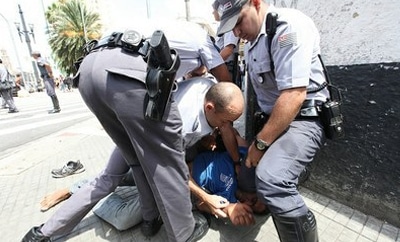Murders in the Brazilian city of São Paulo are surging, with 20 homicides in a 24-hour period this weekend, marking one of the most violent days of recent years.
Homicides in Brazil’s largest city nearly doubled from 69 killings in September 2011 to 135 in 2012.
Analysts attributed the city’s crime spike in part to a cycle of revenge killings between police and São Paulo’s most powerful drug trafficking group, the First Capital Command (PCC). Some 85 police officers were killed in São Paulo state between January and September 2012. In total, some 382 people died in clashes between the city’s military police and alleged criminals in that period, Globo reported.
São Paulo’s police chief Antonio Ferreira Pinto dismissed speculations that the crime wave was a result of failures in police strategy. “It’s a wave that ebbs and flows,” he said. Recent reports suggest, however, that the killing spree has continued into October, according to Clarin newspaper, with some 20 murders reported in the city in 24 hours on October 26-27. Brazilian media described this as one of the most violent days in recent years.
InSight Crime Analysis
São Paulo has made significant security gains in the last 12 years, bringing the state’s murder rate down from 35 per 100,000 residents in 1999 to 10 per 100,000 in 2011, or 4,321 murders that year, according to São Paulo’s Public Safety Secretariat.
The PCC, meanwhile, has gained a stronger foothold on the drug trade throughout Brazil and is extending its reach into neighboring Paraguay and Bolivia.
But a series of assaults on São Paulo’s police, with seven officers killed and five police stations attacked in June 2012, followed by police killing eight people in six separate incidents in the course of one night, has caused experts to say that the crime wave as the result of a war between the city’s police and its mafia. This conflict goes back to May 2006, when the PCC paralyzed São Paulo with a string of attacks that left 40 officers dead.

